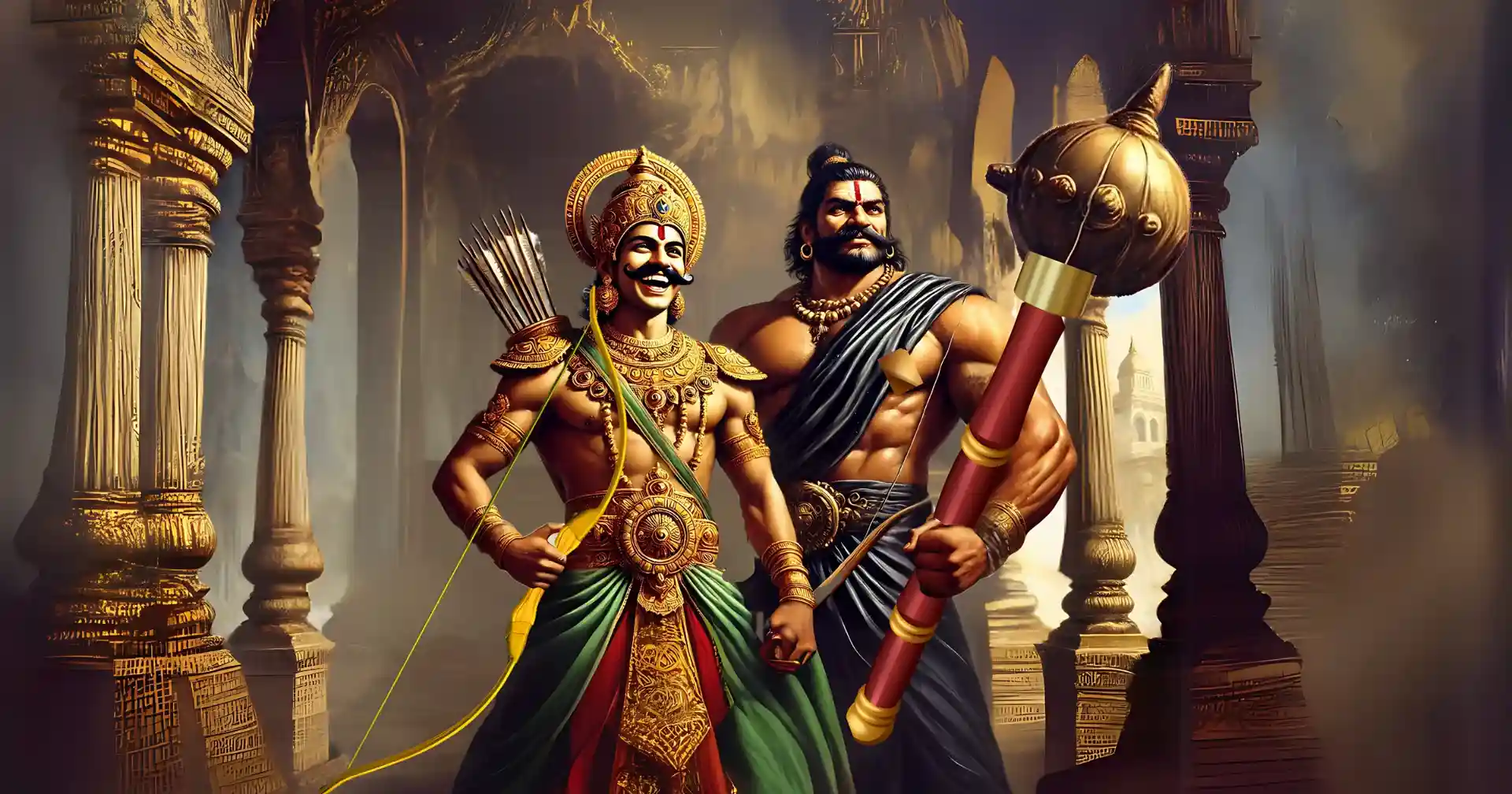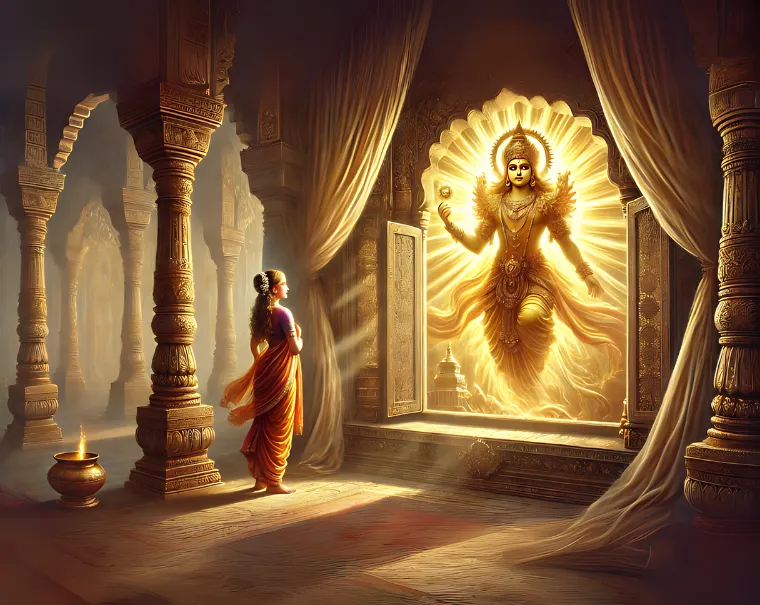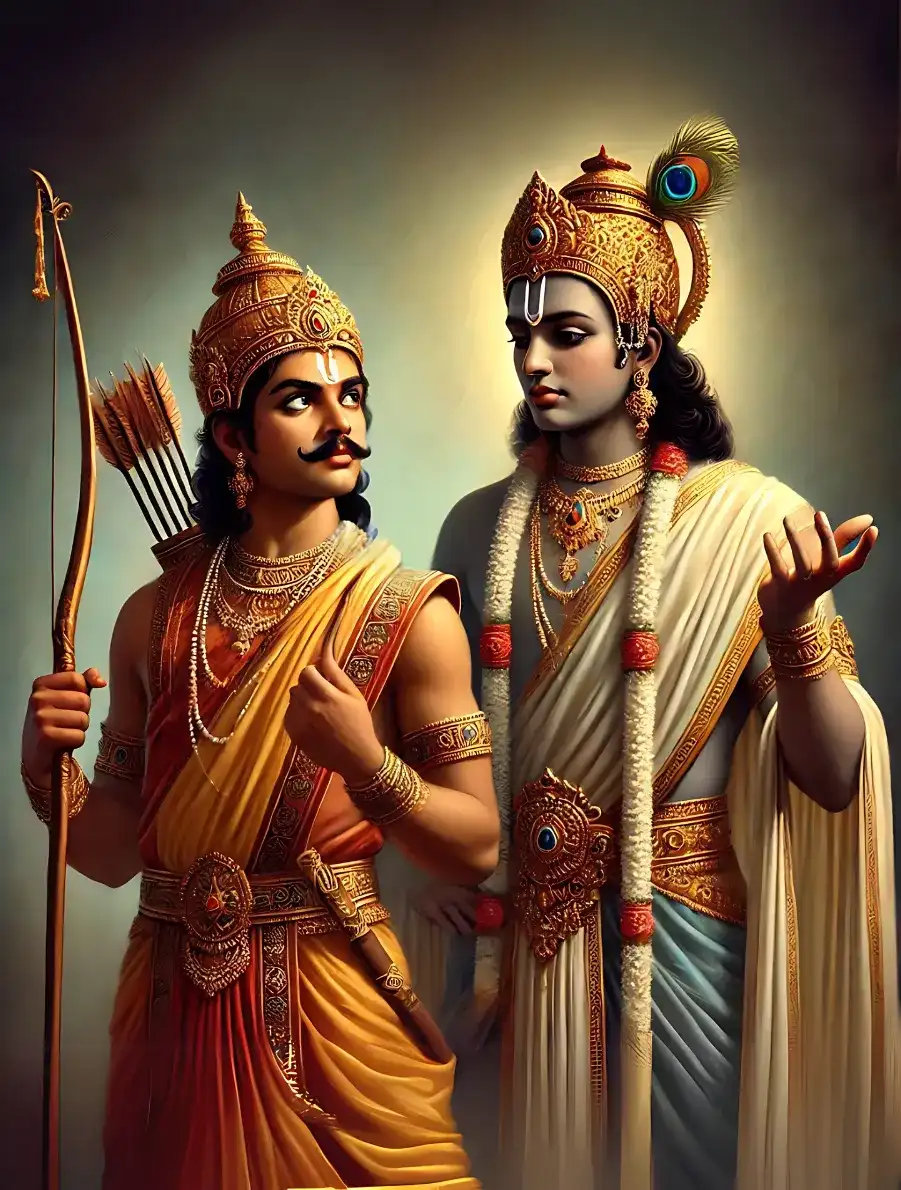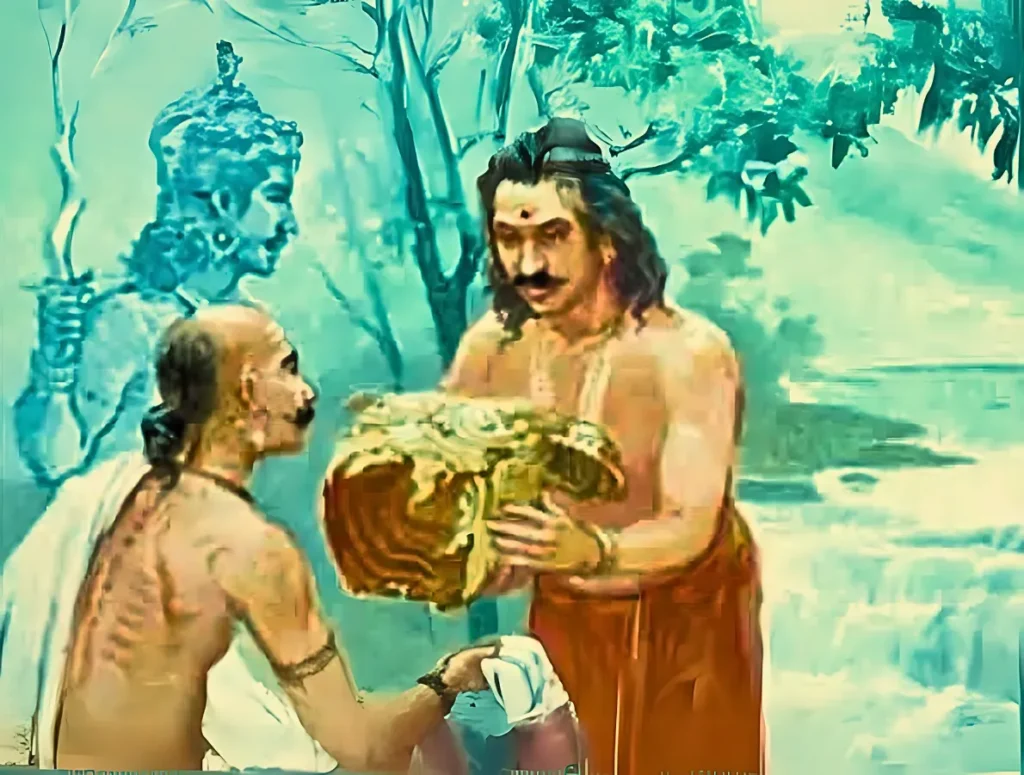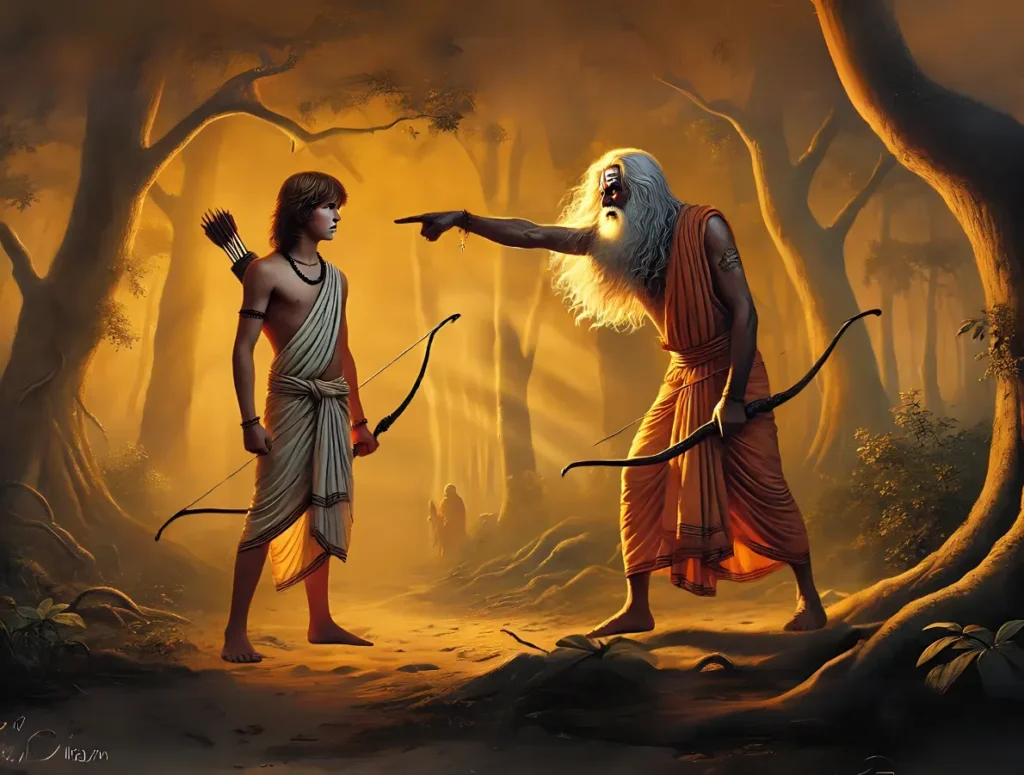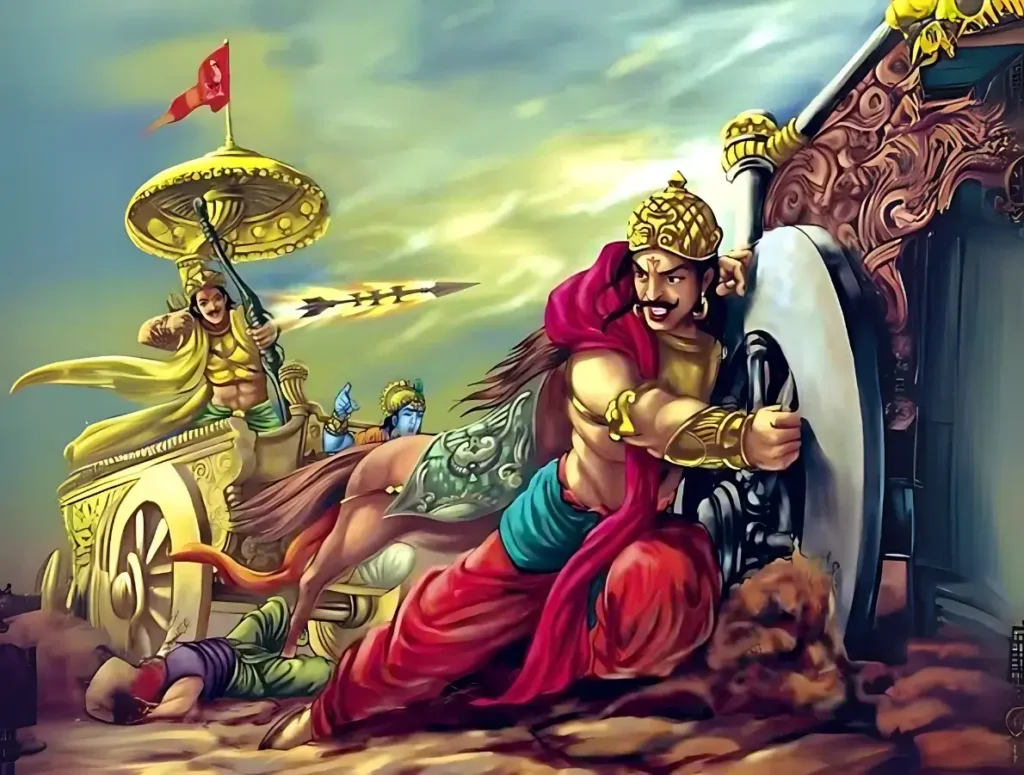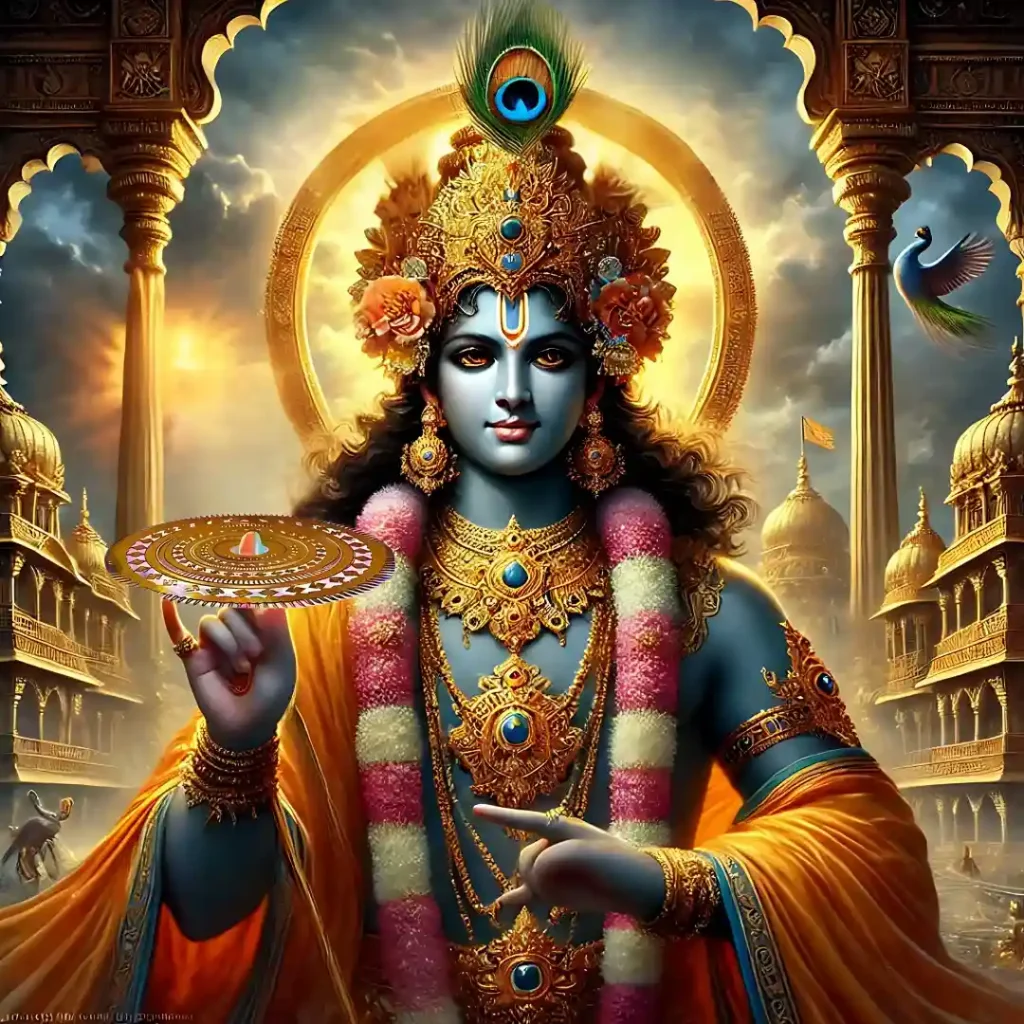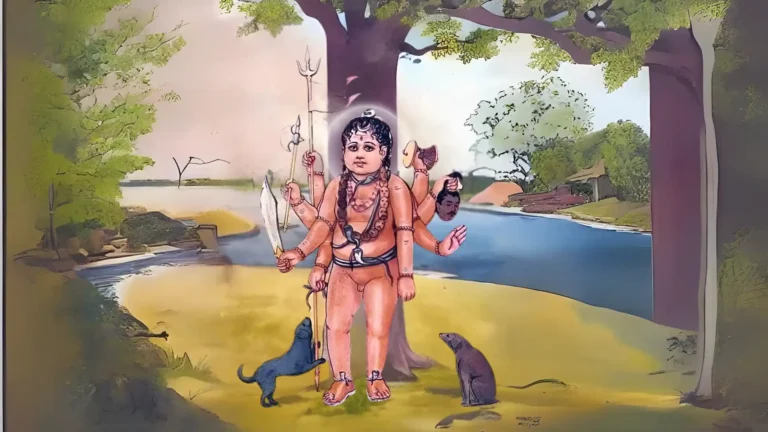Please Like the Blog and Share it for Maximum Reach
Table of Contents
What is Dharma?
In this article we shall explore the meaning of Dharma with respect to the Life of the Great Warrior Karna. Dharma simply means obedience to Sat-Guru and Bhagawan. All else, is Adharma.
Who was Karna?
Karna, the oldest brother of the 5 Pandavas, namely Yudhishthira, Bhima, Arjuna, Nakula and Sahadeva, is not actually one of the Pandavas. How can a brother of the Pandavas not be one among the Pandavas? The word Pandav is closely associated with the numeral five, yet Karna, their oldest brother, remains outside this count. He was born to his mother, Kunti Devi, a young princess who hailed from the Yadava-Bhoja dynasty and whose foster father was Kunti Bhoja.
The princess was devout and had an immaculate service attitude towards sages and Munis who visited the palace to bless the King of the Land, Kuntibhoja. It was popular practice of those days for sages of high spiritual stature to visit and bless the king. Kings served the common people.
Sages blessed them, giving them unknown strength. During one such visit, King Kuntibhoja welcomed Sage Durvasa. He assigned his daughter, Pritha (Kunti Devi), to serve Durvasa Muni, who was infamous for his anger. Pritha served the great rishi with utmost care and surrender, which impressed the sage.
Being impressed by her service, the rishi gave a mantra or a magical spell formula to Pritha, which could manifest any Devata. The spell would force that Devata to give an offspring to whichever chaste woman summons them. Perhaps Durvasa Muni knew what was due in the life of Pritha. After having humbly received the mantra or spell from Durvasa, she tried it.
By that time, Durvasa ji had taken leave from the king’s service. Pritha, unsure of the mantra, was a young inquisitive maiden who decided to test it herself. She uttered the mantra, following the rules that Durvasa had given to Pritha, as a preparatory step towards executing the mantra. She summoned Surya Devata.
As soon as Pritha uttered the mantra, Surya Deva appeared, leaving her in a dilemma. Being unmarried, she didn’t know what to do, as Surya was about to grant her a son as the mantra’s result. Kunti Devi tried to dissuade Surya Deva from granting her a son, but bound by the mantra, he gave the unmarried Kunti a son and disappeared.
Karna’s Struggles and Misplaced Identity
Here was a very unfortunate being. His rightful mother Kunti let go of him, casting his small body in a wooden casket letting him float on the river Ganges. The casket reached the riverbank, where Adiratha, the royal charioteer, was bathing in the cool waters of the Ganges. He was happy to receive the now orphaned this son of Surya Deva and took him to his wife Radha.
The boy grew into a strong, handsome young man with the brilliance of the Sun God and the grace of a king. He got his name Karna because he was born with divine earrings. The word also means ears in Sanskrit. He was a royal, born to Surya Deva and a mother who later became the queen of Hastinapur after marrying King Pandu.
This was the misfortune of one of the most brilliant beings of his time, unmatched in courage, valor, prowess, and archery skills. The young man had to hear himself addressed as “Soot Putra)(सूत पुत्र), meaning the son of a charioteer, an occupation that was looked down upon in those days. Karna had an inkling that something was amiss. He did not feel like a charioteer from inside.
It was as if he had a mistaken identity and suffered all his life because somehow he could not come to terms with this idea that he was the son of a mere charioteer. He often suffered because people referred to him by his father’s seemingly lowly profession. He never knew about his royal origins and suffered because of his parentage.
This is one of the most painful ongoing experiences of his life. It was as if he perennially suffered an identity crisis.This bitterness made him turn against society and lose concern for right and wrong. Though a Kshatriya by blood, he valued his self-respect above all. He saw life as a balance scale—he favored those who honored him and scorned those who denied him respect. This marked the beginning of a flaw in his personality.
7/8 Questions from Sanatana Dharma
The scores generated in this Quiz may or may not be absolute. There may be right or wrong answers to each Question. A percentage towards 100 indicates that you are more aligned to the overall subject matter.
What should we learn from the Birth of Karna?
Spiritually speaking, we can learn a lot from Surya Putra’s Birth. Our Birth is not in our control. Our past life Karmas decide it. According to the Mahabharata, Karna was the rebirth of Sahasrakavacha. Sahasrakavacha was an asura who sought immortality from the Sun god, Surya. Surya granted the boon, but knew that the demon would use his powers for evil.
This boon to Sahasrakavacha was a bane to society. Sahasrakavacha was born with a thousand armors and a pair of earrings. The great twins, Nara-Narayana, incarnations of Sriman Narayana, fought fiercely with the evil demon.
They shattered 999 armors one by one, but a single armor remained, keeping the demon invincible for a time.The next birth of this demon was Karna. Having battled the incarnation of Bhagawan, he gained the merit of being born as the son of the Sun God but remained unfortunate in his identity.
The evil Karma of having been born as an Asura, gave him a re-birth, a cursed one. Many stalwarts in the Mahabharata including the Pandavas consistently questioned him about his birth and Varna.
Thus having a bad previous birth, translates into a challenging next birth. If we lack the vision to analyze life and focus too much on our own prestige and position, it creates confusion and clouds our judgment, leading us to see the world through a distorted view of ourselves.This is exactly where the young man had slipped from Dharma to start with.
Karna’s Supreme Skills and Loyalty
Being of royal origin has its advantages and disadvantages. On the positive side, genetics can shape a person’s skills and abilities. Karna became a courageous and skilled archer, capable of challenging even the greatest masters of warfare, including the god-protected Arjuna. As the King of Anga, he showcased his brilliance by conquering almost the entire Bharata Varsha and claiming the crowns of nearly all its kings.
Sri Krishna honored Surya’s unfortunate son as one of the greatest archers and prevented Arjuna from demeaning this noble warrior, as Bhagawan sees everything. Bhagawan knew Karna was the son of Kunti and Surya Deva.
So he ensured that none of the Pandavas insulted Karna, fully aware that Karna was their eldest brother, even though neither the Pandavas nor Karna knew about their relation. At a grand public event, Karna boldly displayed his exceptional skills and directly challenged.
Arjuna to fight him, urging him to prove himself instead of boasting about his Guru Dronacharya and his training. He mentioned he could take any challenge thrown at him by Arjuna. People ridiculed Karna for his identity, and he fell silent, his head hanging in shame. But Duryodhana stood by his side.
Duryodhana, Karna’s True Friend and their Plots against the Pandavas
Duryodhana stood by Karna at all times and would stand by him through thick and thin. He often stood ahead to protect the young warrior from the toxicity that the Pandavas threw at Karna. Arjuna used to mock Karna blaming his low-born status.
But Duryodhana, the chief antagonist of the Mahabharata always stood in Karna’s defense. The epitome of bravery did not consider the evil-mindedness and the meanness of Duryodhana. Karna knew about all the plots that they hatched against the Pandavas, in the association of the evil maternal uncle of Duryodhana, Shakuni. Duryodhana, his younger brother Dushasana, Karna and Shakuni even plotted to murder the Pandavas.
The man knew the Kauravas were evil but blindly supported them out of a misplaced sense of loyalty to Duryodhana. He believed he owed Duryodhana for his kindness and justified all his wrongdoings, thinking it was his duty to stand by him, no matter what.
Spiritual teachings from the Duryodhana-Karna Friendship
Bhagawan says stand for what is righteous and for Higher Dharma let go of the lower Dharma. The oldest sibling believed the Pandavas were unworthy of their claim to Hastinapur or Indraprastha, the capital of their kingdom.
He felt so, because that was Duryodhana’s point of view and according to Karna whatever was Duryodhana’s view was the only right way to look at things. Blinded by Duryodhana’s influence and an overwhelming sense of loyalty, Karna failed to see the truth. According to the Dharma Shastras, this is Adharma.
Dharma says that we must protect it, even if we face defeat. Here was a man, willingly abandoning Dharma for the sake of the wicked Duryodhana, who bought his loyalty with mere words of praise and false friendship. Deep down, the Surya Deva’s son always knew that Duryodhana was in the wrong, yet he silenced his conscience.
Comparing Vibheeshana and Karna
We compare this situation to the state of Vibheeshana, who loved his evil brother Ravana, but yet considered Sri Rama as His Aradhya or Lord of his heart. When one loves the Lord, people consider that person the very personification of Dharma. In Vibheeshana’s heart, Bhagawan held the highest position.
Recognizing this, Bhagawan sent Sri Hanuman, the embodiment of Guru Tattva, to guide Vibheeshana and bless him with the supreme form of Rama Bhakti. It was this inner strength that gave Vibheeshana the courage to demand that Ravana return Srimati Seeta Devi to Lord Rama.With the grace of Hanumanji, Vibheeshana stood firm, enduring Ravana’s insults and even being kicked.
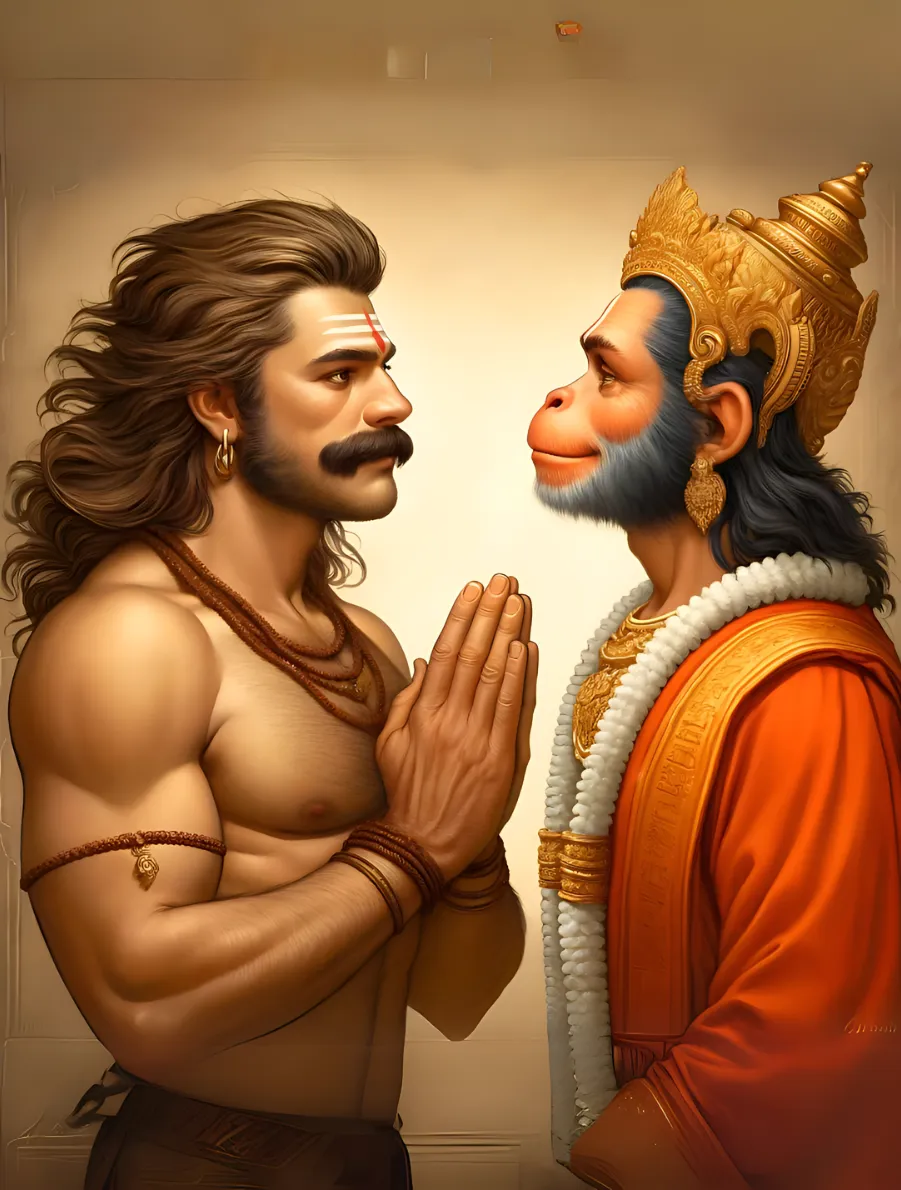
Undeterred, he abandoned Adharma and, guided by Hanumanji’s divine grace, sought refuge at the Lotus Feet of Sri Rama. Here, Vibheeshana stands as an antipode to Karna’s self-centered mentality.
Vibheeshana embodied the highest form of Bhakti, as he renounced all material ties for the sake of Bhagawan. In contrast, this Kunti Putra forsook Bhagawan Sri Krishna for the sake of the wicked Duryodhana, clinging to a false sense of loyalty under the illusion of repaying a debt of friendship.
Although renowned for his generosity, the warrior chose to fully align himself with Adharma. Even when Sri Krishna revealed the truth of Karna’s royal birth, Karna remained unmoved.
Despite knowing that Sri Krishna was none other than Bhagawan Himself, this brother of Arjuna stubbornly clung to his loyalty to Duryodhana, blinded by a misplaced sense of friendship. In the end, though valiant and skilled, Karna met his death supporting an evil cause, refusing to heed the divine words of Bhagawan till his last breath.
Some of us get influenced by Karna’s so-called loyalty and appreciate him. However as spiritual beings, this is an ignorant stand to take. Karna had the option to distance himself from both the Pandavas and the Kauravas, honoring his debt to Duryodhana without actively supporting either side.
By choosing neutrality, he could have avoided aligning himself with Adharma. But Karna did not consider Sri Krishna’s advice. If one surrenders to Bhagawan, He promises to absolve all sins. Yet, we remain trapped in the illusion of Maya, believing it to be real, even when Mayadheesh—the very Master of Maya—guides and instructs us. This blindness to His divine truth is truly unfortunate.
Karna and His Rivalry with Arjuna
Although Karna was very competent, he always met with defeat in every war he had with Arjuna. In the Virata Yuddha, Arjuna single-handedly routed the Kaurava army at the borders of Matsya Desha. Karna was no match for Arjuna.
One may wonder why a warrior as skilled and accomplished as Karna fell to Arjuna. The answer is simple yet profound—Bhagawan stood with Arjuna and against Karna. How could Karna ever hope to win?
Repeatedly, Karna would look up at the sky, his heart heavy with frustration, and question his father, the mighty Surya Devata, asking why he always faced defeat against Arjuna. Surya Devata, though knowing the truth, could only watch helplessly, for how could anyone aid someone standing against Bhagawan Himself?
Karna’s defeat was not just a battle lost; it was inevitable, for no one can triumph when pitted against the will of the Divine.
Karna’s near-Godly Qualities
The finest qualities in any individual—whether wisdom, knowledge, bravery, courage, beauty, strength, or grace—are reflections of Bhagawan Himself.
In the same way, Karna’s unmatched valor, his fearlessness in facing any challenge, and his willingness to give away anything after his customary Surya Pooja to anyone who approached him in need, were all manifestations of Sri Krishna’s divine qualities.
Karna even presented the Kundalas (the celestial ear-rings) and his protective armor, an integral part of his body to Indra, knowing well that giving away such invaluable items shall seal his death at the hands of Arjuna.
Even Indra, the Lord of the Heavens, and Arjuna’s father could not believe that Karna could just cast away his life-saving possessions to the enemy, in this case Indra, left the great Lord of Heavens speechless, filled with genuine emotions towards his son’s sworn enemy Karna.
Indra gave away his magnificent weapon Shakti to Karna as a return gift for a onetime use. The Shakti could never miss its mark. Karna had reserved it for Arjuna. Sri Krishna, the Lord of every heart, could only praise Karna for all these divine qualities, the rarest of the rare qualities. Such qualities represent Bhagawan. Sri Krishna, always reprimanded Arjuna whenever Arjuna tried to belittle Karna using strong hateful words.
The End of Karna
Karna had already used Shakti, the divine weapon Indra had gifted him, to kill Ghatotkacha, the demon son of Bhima. Now, Arjuna’s sworn enemy faced Sri Krishna and his most hated enemy on the battlefield, burdened by two devastating curses.
The first curse came from his Guru, Sri Parshuram. Duryodhan’s friend had lied about his Varna to learn the divine knowledge of weapons. When the truth emerged, Parshuram cursed him to forget this knowledge at the moment he needed it the most. The second curse came from a Brahmin whose cow Karna had accidentally killed. The Brahmin cursed him to be slain in a vulnerable state, unarmed and helpless.
These curses unraveled at the most critical moment. As Surya Putra faced Indra Putra, his memory failed him. He forgot the mantras required to summon life-saving weapons. With the Supreme Lord Sri Krishna driving Arjuna’s chariot, Karna struggled forward, but fate struck.
His chariot wheel sank into a crater, immobilizing him. The warrior dismounted to free the wheel, desperately trying to pull it out. At that moment, Sri Krishna, the Lord of all beings, commanded Arjuna to strike.
Arjuna hesitated. He argued that shooting an unarmed opponent who wasn’t on his chariot went against Dharma. But Sri Krishna, the embodiment of divine justice, reminded Arjuna of Karna’s role in Adharma.
He recalled how this Kunti Putra’s cruel words had tried to humiliate Draupadi, outraging her modesty. He spoke of Karna’s involvement in every wicked scheme alongside Shakuni, Duryodhana, and Dushasana—plots that unjustly exiled the Pandavas and caused untold suffering.
Sri Krishna declared that for the victory of Ultimate Dharma, eliminating the root of Adharma—Karna—was necessary, even if the means appeared unconventional. Encouraged by Krishna’s words, Arjuna accepted his duty. With unwavering resolve, Arjuna released his arrow and slew his brother. Well, Arjuna did not know this fact at the time of his opponent’s death.
The warrior’s fall on the battlefield marked the culmination of his fate, the weight of curses, and the consequences of his choices. It was not just the death of a mighty warrior, but the resounding victory of Dharma over Adharma, orchestrated by the Supreme Lord Himself—a moment that sealed the eternal truth that Adharma, no matter how adorned with greatness, will always fall before the will of Bhagawan.
Adharma, even when sugar-coated with virtues, cannot be celebrated.
Karna undoubtedly possessed extraordinary qualities—his unmatched generosity, unwavering loyalty to a friend, and deep sense of self-respect stand as testaments to his character.
Yet, these qualities lose their luster when placed against the backdrop of Dharma. Karna failed not because of his abilities but because he chose to uphold personal belief systems over universal righteousness. His refusal to forsake Adharma, even when guided by the divine words of Bhagawan Sri Krishna, renders him unfit to be a role model for spiritual progress.
True spiritual growth demands the courage to surrender personal attachments and beliefs when they stand in the way of Dharma. The great son of Surya Deva fell short of this ideal. In contrast, Arjuna, with unwavering obedience to Bhagawan, aligned himself with Satya (truth), Dharma (righteousness), Shanti (peace), and Prema (divine love). Such obedience, born of faith and humility, elevates an individual to the epitome of Dharma.
Let this be clear: obedience to Bhagawan is the only path to align with the eternal principles of truth and righteousness. All else—no matter how glorious it appears—is material and perishable.
People may admire this warrior for his greatness in the material world, but Bhagawan finds no place for him on the spiritual horizon. True greatness lies not in extraordinary abilities alone, but in surrender to the Divine will, for it is only in aligning with Bhagawan that one can rise beyond the transient and into the eternal.
Please Like the Blog and Share it for Maximum Reach

